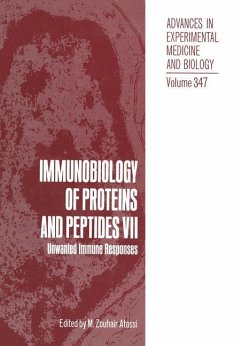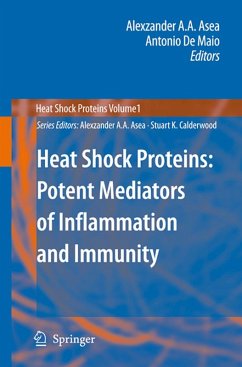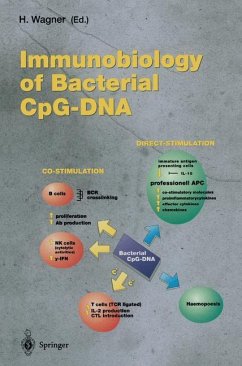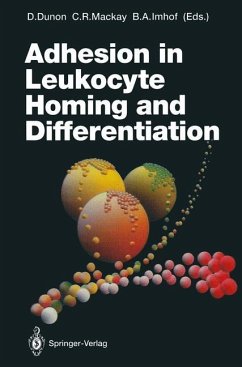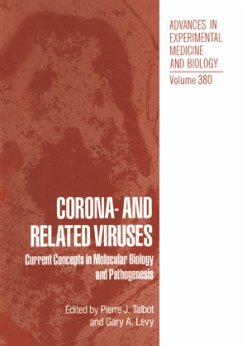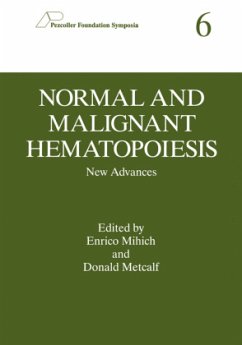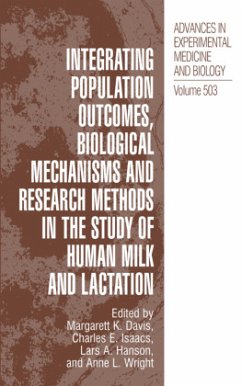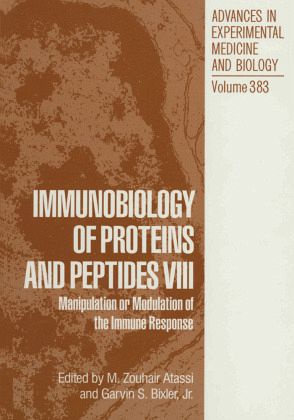
Immunobiology of Proteins and Peptides VIII
Manipulation or Modulation of the Immune Response
Herausgegeben: Bixler, Garvin S.; Atassi, M. Zouhair

PAYBACK Punkte
20 °P sammeln!
This volume summarizes the proceedings of the Eighth International Symposium on the Immunobiology of Proteins and Peptides which was held on November 16-20 in Rio Rico, Arizona. The articles represent papers by invited speakers as well as papers selected by the Scientific Council, from among those submitted by the participants, on the basis of quality and timeliness. This symposium series was established in 1976 for the purpose of bringing together, once every two or three years, active investigators in the forefront of contemporary immunology, to present their findings, discuss their signific...
This volume summarizes the proceedings of the Eighth International Symposium on the Immunobiology of Proteins and Peptides which was held on November 16-20 in Rio Rico, Arizona. The articles represent papers by invited speakers as well as papers selected by the Scientific Council, from among those submitted by the participants, on the basis of quality and timeliness. This symposium series was established in 1976 for the purpose of bringing together, once every two or three years, active investigators in the forefront of contemporary immunology, to present their findings, discuss their significance in the light of current concepts and identify important new directions of investigation. The founding of the symposium was stimulated by the achievement of major breakthroughs in the understanding of the immune recognition of proteins and peptides. We believed that these breakthroughs would lead to the creation of a new generation of peptide reagents, which could have enormous potentialin biological, therapeutic, and basic applications. This anticipated explosion has since occurred and many applications ofthese peptides are now being realized. The eighth symposium focused on the manipulation or modulation of the immune response. This volume broadly covers the areas of adjuvants, cytokines, vaccines, and the use of intravenous immunoglobulins for disease management. There is a clear need to identify methods for improving vaccine efficacy and guiding the host to respond with a particular type of immune response.



